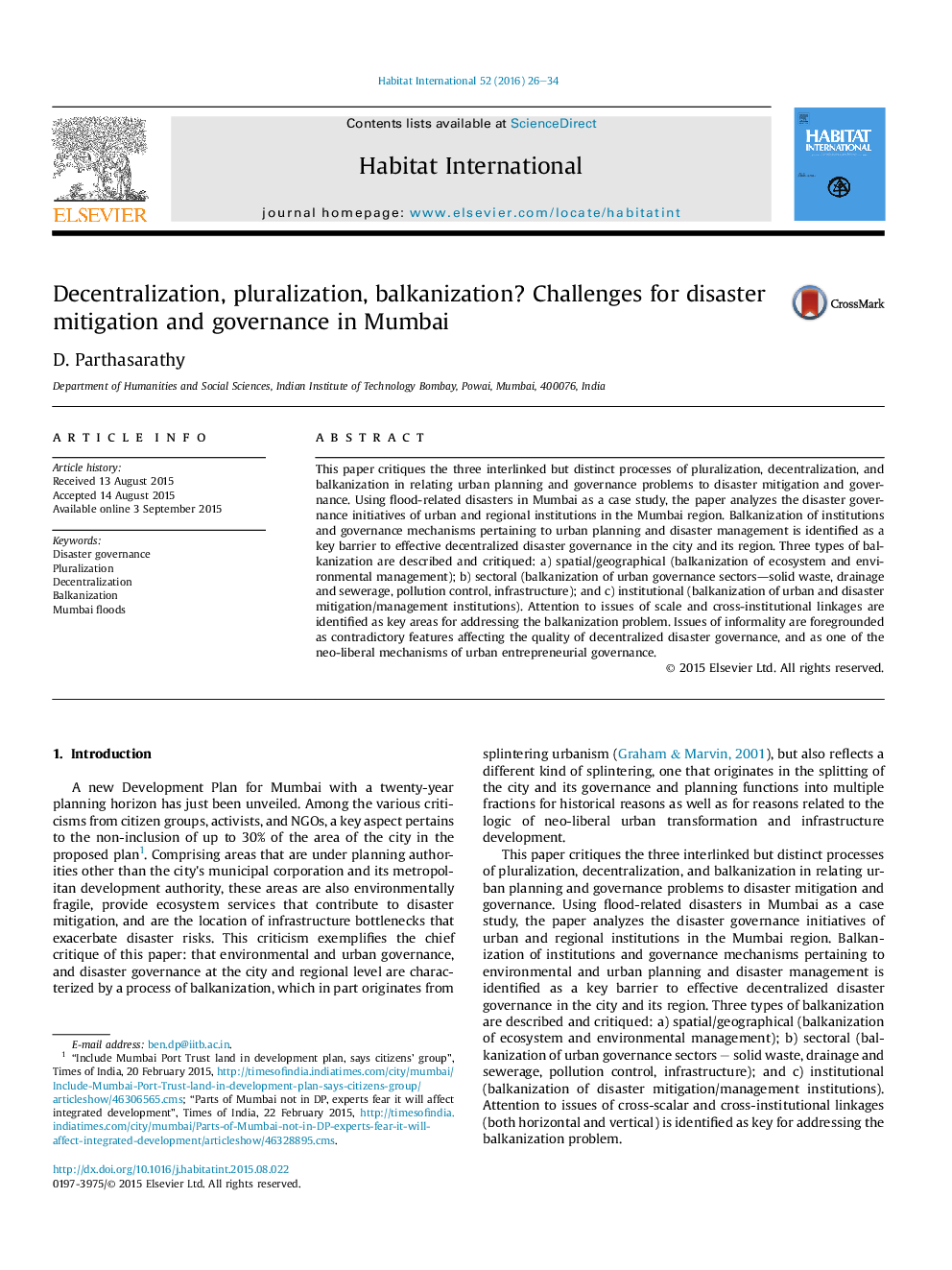| Article ID | Journal | Published Year | Pages | File Type |
|---|---|---|---|---|
| 1047723 | Habitat International | 2016 | 9 Pages |
•Three interlinked processes of pluralization, decentralization, and balkanization are studied.•Balkanization of Urban planning/governance affects flood mitigation and governance in Mumbai.•Three types of balkanization are analyzed: spatial/geographical, sectoral, and institutional.•Issues of cross-scale and -institutional linkages are key for addressing balkanization problems.•Discrete and Overlapping influence between institutions are mapped to assess risk mitigation.
This paper critiques the three interlinked but distinct processes of pluralization, decentralization, and balkanization in relating urban planning and governance problems to disaster mitigation and governance. Using flood-related disasters in Mumbai as a case study, the paper analyzes the disaster governance initiatives of urban and regional institutions in the Mumbai region. Balkanization of institutions and governance mechanisms pertaining to urban planning and disaster management is identified as a key barrier to effective decentralized disaster governance in the city and its region. Three types of balkanization are described and critiqued: a) spatial/geographical (balkanization of ecosystem and environmental management); b) sectoral (balkanization of urban governance sectors—solid waste, drainage and sewerage, pollution control, infrastructure); and c) institutional (balkanization of urban and disaster mitigation/management institutions). Attention to issues of scale and cross-institutional linkages are identified as key areas for addressing the balkanization problem. Issues of informality are foregrounded as contradictory features affecting the quality of decentralized disaster governance, and as one of the neo-liberal mechanisms of urban entrepreneurial governance.
